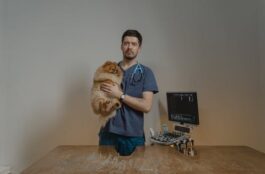
Our pets are part of our families; just like us, they also need the best healthcare available. This often includes veterinary surgery, a crucial component of a pet’s well-being and longevity. Given the wide range of pet health complications, various types of veterinary surgery have been developed, each targeted at specific health needs.
The Role of Veterinary Surgery in Pet’s Health
The Importance of Routine Check-Ups
- Early Detection of Health Problems: Routine check-ups allow the vet to detect developing health concerns. The earlier a problem is identified, the easier it tends to tackle.
- Prevention of Serious Complications: During regular check-ups, vets ensure up-to-date vaccinations are crucial in preventing severe diseases.
The Role of Surgery in Disease Treatment and Management
Veterinary surgery is not just crucial in treating diseases but is also instrumental in managing existing conditions. The vet surgeon plays a key role in a pet’s health and recovery from cancerous tumors to amputation of a severely injured limb.
Understanding Different Types of Veterinary Surgery
Orthopedic Surgery
- This type of surgery addresses problems related to the skeletal system and associated structures.
- It enhances a pet’s quality of life by correcting fractures, repairing torn ligaments, and managing chronic diseases like arthritis.
Soft Tissue Surgery
- Soft tissue surgery focuses on areas outside the skeletal system.
- From addressing gastrointestinal problems to removing skin tumors, this veterinary surgery has helped countless pets lead comfortable, pain-free lives.
Ophthalmologic Surgery
- The eyes are among the most sensitive organs.
- Whether cataracts, glaucoma, or retinal issues, ophthalmologic surgery can drastically improve a pet’s quality of life.
Oral Surgery
- Oral health problems are common among pets, and oral surgery helps treat dental diseases, fractures, and oral tumors, significantly improving a pet’s overall well-being and comfort.
Preparing Your Pet for Surgery
Pre-Surgery Veterinary Consultation
Preparing your pet for surgery includes a pre-surgery consultation during which the vet will evaluate your pet’s overall health, discuss the surgical procedure, and administer any required preoperative tests.
How to Prepare Your Pet at Home
- Fasting: The pet is often recommended to fast for a specified duration before the surgery.
- Emotional Preparation: Pets can sense when something is different. So, maintaining a calm and comforting environment can help ease anxiety.
Veterinary Surgery Services for Pets
Numerous vet surgeons and clinics provide specialized veterinary surgery services for pets, ranging from routine neutering to complicated orthopedic procedures. Choosing a service where your pet is comfortable and safe and where the vet surgeon has the requisite experience and skills to carry out the necessary procedures is essential.
Preparing Your Pet for Surgery
Preparing your pet for surgery is one of the most crucial steps in ensuring successful outcomes. Here’s a detailed scene-builder on how to do it:
Pre-Surgery Veterinary Consultation
- Medical History Review: The vet will review your pet’s medical history, including previous surgeries, current medications, and known allergies. They will also use this time to answer any concerns or questions.
- Physical Examination: The vet will perform a full body physical examination of your pet to ensure they are healthy before surgery.
- Preoperative Tests: This can include blood tests, x-rays, ultra-sounds, or ECGs to assess your pet’s overall health and readiness for anesthesia and surgery.
- Discussion of Procedure: The veterinary surgeon will discuss the procedure, its benefits, possible complications, recovery expectations, and aftercare.
How to Prepare Your Pet at Home
- Fasting: Most vets recommend that pets fast for a certain period before surgery. This reduces the risk of vomiting and aspiration during anesthesia. Your vet will advise the exact duration.
- Hygiene: For certain surgeries, specific hygiene requirements may be given. It’s important to follow these instructions closely.
- Comfortable Transportation: Ensure your pet is comfortably transported to the vet clinic. Using a pet carrier for smaller pets and a harness for bigger pets can help minimize stress.
- Emotional Preparation: Maintain a calm and comforting routine for your pet. Your pet might pick up any anxiety or stress you project. So, staying relaxed and positive is key.
Briefing the Vet Team on the Day of Surgery
- Current Medications: Ensure that the vet team knows any medications your pet is taking, including timing and dosage.
- Changes in Behavior: If you have observed any changes in your pet’s behavior, diet, or toilet habits since your last consultation, let the vet team know.
- Emergency Contact Details: Leave your emergency contact details with the clinic. The vet team should be able to reach you swiftly if needed.
Creating A Post-Surgery Comfortable Environment at Home
- Quiet and Warm Space: Your pet requires a tranquil environment after surgery. Prepare a quiet and warm space where your pet can rest without being disturbed.
- Easily Accessible: Make sure this area is easily accessible, especially if the pet’s mobility can be limited after surgery.
- Prepare for Dietary Changes: Your vet may recommend a special diet during recovery. Make sure you have this diet at home before the surgery.
Factors to Consider When Exploring Surgical Options for Pets
Considering Your Pet’s Age and Overall Health
Your pet’s age and health status can influence whether surgery is recommended. For instance, older pets or those with chronic health conditions may not be ideal candidates for certain surgeries.
Understanding the Risks and Benefits
In any surgery, understanding the potential risks and benefits is critical. Always have an in-depth conversation with your vet surgeon about what to expect before deciding.
The Costs of Veterinary Surgery
Surgery can be costly, but remember, it’s an investment in your fur-friend’s health and happiness. Discussing possible payment options and pet health insurance with your vet surgeon can help manage these costs.
Conclusion
Veterinary surgery plays a significant role in maintaining our pets’ health. Whether it’s an orthopedic, soft tissue, ophthalmologic, or oral surgery, these procedures can greatly enhance the quality of life of our beloved companions. Remember to consult thoroughly with your vet surgeon, prepare your pets appropriately for surgery, and take good care of them post-surgery.

